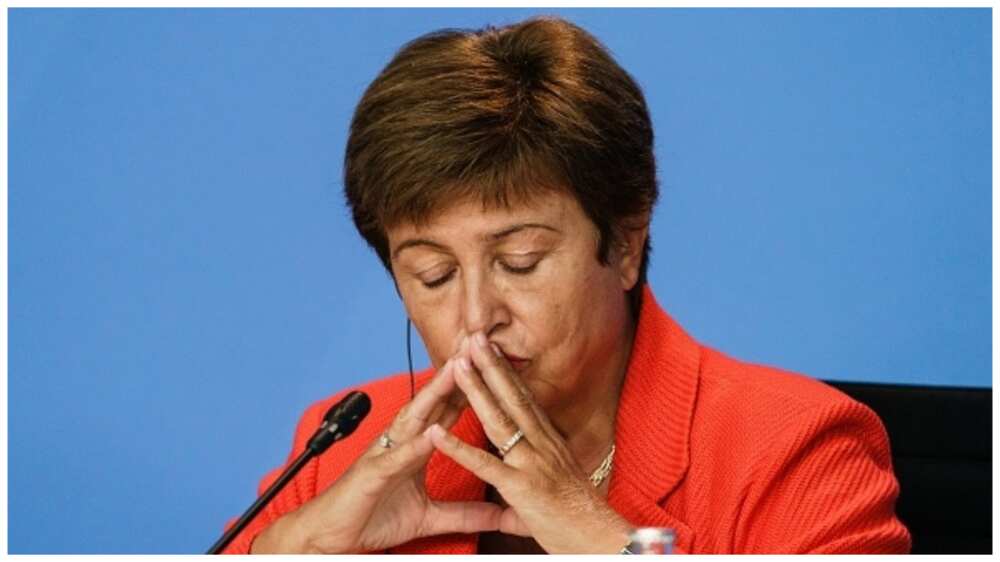After Sri Lanka Says It Can No Longer Pay Its $51bn Debt, IMF Fears Nigerian Govt’s Debt Exposes Banks to Risk
- The International Monetary Fund (IMF) is expressing fears about Nigeria's growing debt levels as more countries join the list of defaulters
- To finance its budget deficit, the Nigerian government borrows from banks, countries, and investors
- Sri Lanka recently told its foreign creditors that it can no longer pay its over $51 billion debt, joining the long list of countries over the years that have had issues with debt
PAY ATTENTION: Сheck out news that is picked exactly for YOU ➡️ find the “Recommended for you” block on the home page and enjoy!
Following the announcement that Sri Lanka has joined the list of nations that have defaulted on their commitments to foreign banks and investors, the International Monetary Fund (IMF) has raised concerns about Nigeria's debt.
IMF said on Monday that banks in Nigeria and other emerging markets are exposed to high risk due to rising governments’ debt owed to the lenders.
Governments look to domestic banks for loans to support their budget deficit, and according to the Bretton Wood institution, government debt amounts to a quarter of bank assets in some emerging economies.

Source: Getty Images
In Nigeria, the government’s debt to banks currently stood at N18.1 trillion, against the N648.26 billion in June 2015.
PAY ATTENTION: Сheck out news that is picked exactly for YOU ➡️ find the “Recommended for you” block on the home page and enjoy!
In 2021 alone, a year after the COVID-19 outbreak, the government borrowed N4.34 trillion, and has borrowed N704 billion as of January this year.
In a statement on Monday, 18 April 2022, IMF said governments across the world have spent aggressively to help households and employers weather the economic impact of the pandemic.
It said:
“Average ratio of public debt to gross domestic product—a key measure of a country’s fiscal health—rose to a record 67 percent last year in emerging market countries."
The rise in government bank debt, according to IMF, is also tied to the creditors using government bonds as an investment that they can use as collateral for securing funding from the central bank.
The institution said rising debt could cut banks’ lending to companies and households if the government finances come under pressure, adding that the development could slow down the economic activity, and weigh down on the economy.
IMF added:
“The debt exposes banks to losses if government finances come under pressure and the market value of government debt declines.
“That could force banks—especially those with less capital—to curtail lending to companies and households, weighing on economic activity. As the economy slows and tax revenues shrivel, government finances could come under even more pressure, further squeezing banks."
Countries that have missed payments on their loans
Since 1960, 147 nations have defaulted on their loans, according to the World Economic Forum; below is a list of some of them.
- Spain- In 1557, Spain became the first country to default on its loans. Notably, between the eighteenth century and nineteenth century, this European nation had defaulted on its debt 15 times.
- Argentina- The country defaulted on its loans in 2001 worth $132 billion. The country defaulted on its debt in 2016 and 2020.
- Russia- According to the International Monetary Fund, Russia defaulted on its loans in 1918 and 1998. After the disintegration of the USSR, in 1993, Russia inherited an external debt of $100 billion at creditors’ request and in exchange for promised financial assistance,
- Amidst the international sanctions imposed on the country as it invaded Ukraine, experts have pointed out that Russia can once again default on loans worth $117 billion.
- Ukraine- The country defaulted on its loans in 1998 and 2020.
- Venezuela- Venezuela defaulted on its loans worth $60 billion between 2017 and 2018,
- Greece- defaulted on its debt twice in 2015 worth $1.7 billion and 456 million euros, respectively.
- Ecuador- Ecuador defaulted on its debt in 2008 and 2020.
- Mexico- defaulted on its debt in 1982 and 1995. In 2010.
- Jamaica- Jamaica defaulted on its debt worth $7.9 billion.
Nigeria's 2022 budget is riddled with corruption as BudgIT discovers over N378bn hidden duplicated projects
Meanwhile, Nigeria's civic tech organisation, BudgIT revealed that out of 21,108 capital projects in the 2022 approved budget, 460 are duplicated projects worth over N378.9billion.
The budget tracker also raised alarm about over-inflated projects amounting to billions of Naira directly linked to the State House and the Presidency.
According to Gabriel Okeowo, BudgIT’s Country Director the loopholes for fraud in the 2022 FG budget is a crime against the 86million Nigerians living below the poverty line.
Source: Legit.ng




